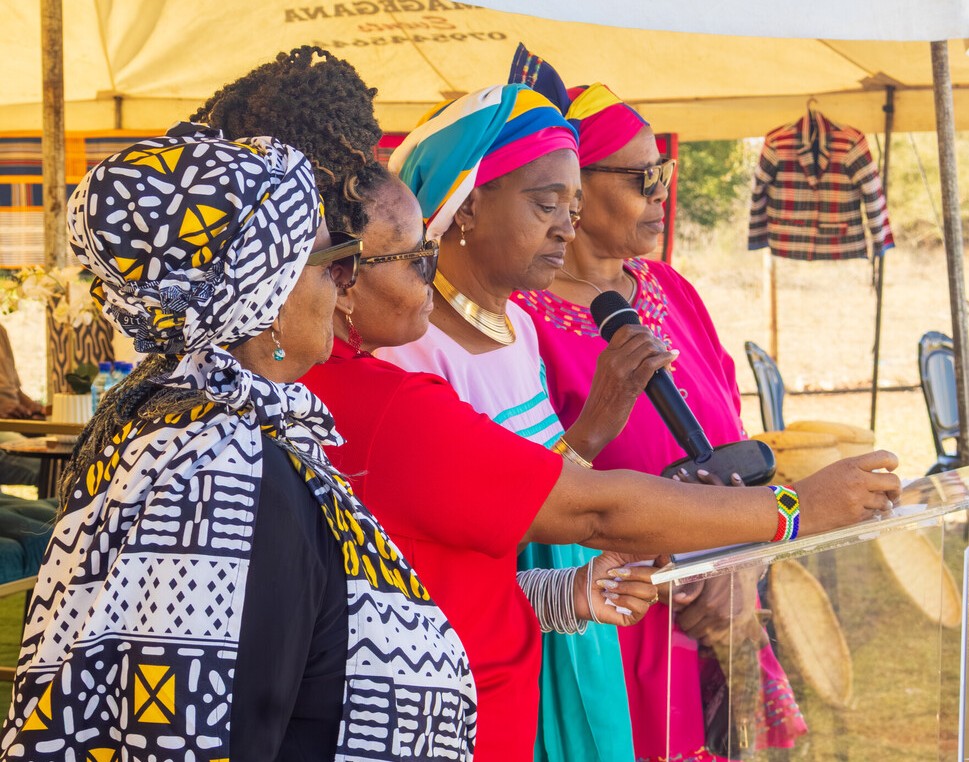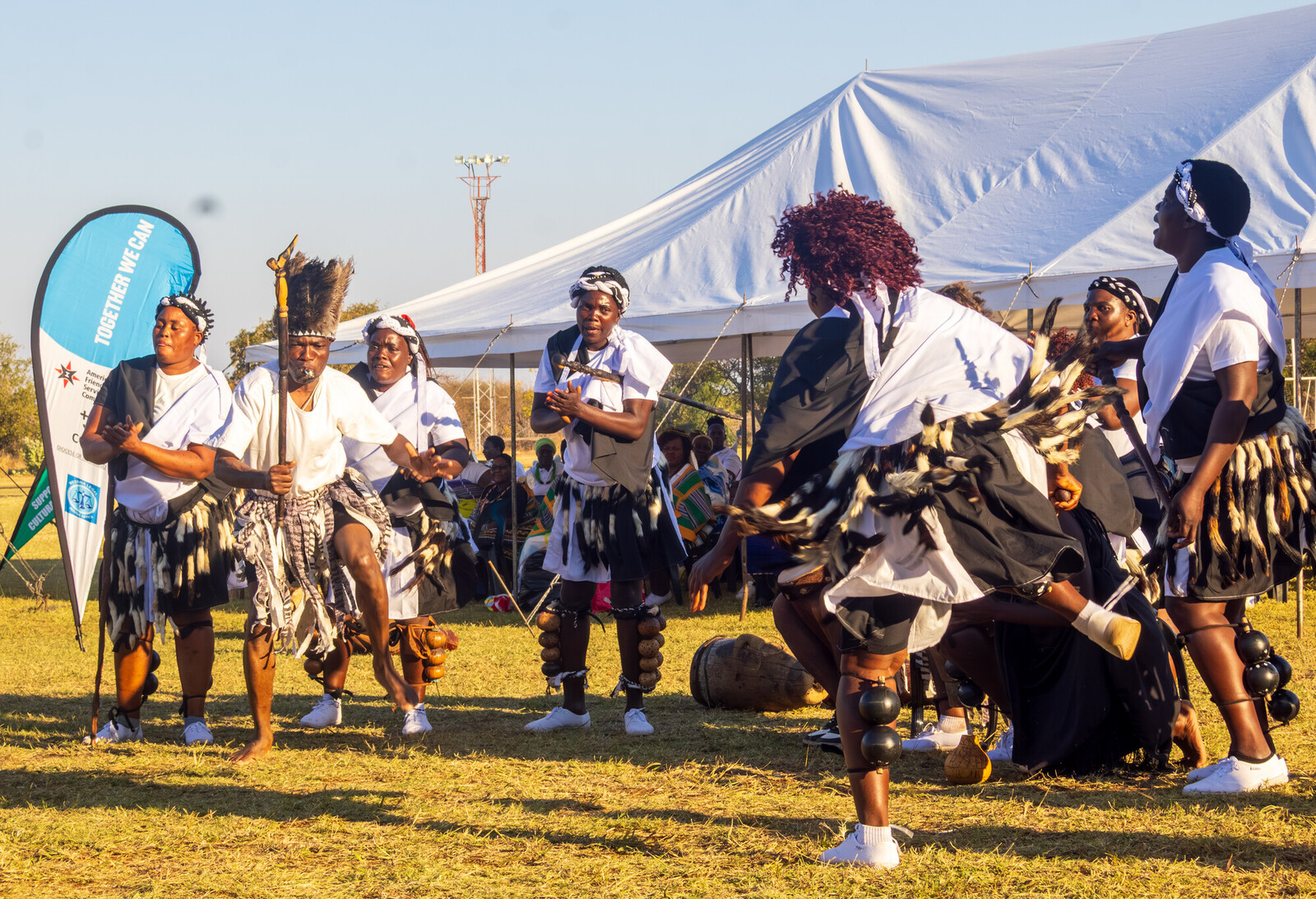
A cultural festival coordinated by AFSC brings together people from Zimbabwe and South Africa in the border town of Musina. Photo: Robel Yoseph Tewolde / AFSC
The Limpopo River flows for over a thousand miles across Africa. At one point in its long course, where it separates the nations of Zimbabwe and South Africa, tens of thousands of migrants cross the bridge between the two countries. It is one of the busiest border crossings in all of Africa.
“It is hard for people on the move,” said Nthabiseng Nkomo, who leads AFSC’s work in Zimbabwe. “Residents of communities on both sides of the border see them as threats and criminals, and don’t want to help them. They often lack basic necessities like food and shelter, money for bus fare, and mobile phones they can use to contact family.”
Zimbabwe is a beautiful country left poor by many years of government corruption and repression. Today, the unemployment rate is high, so many people leave Zimbabwe to look for work in wealthier South Africa—along with migrants traveling from further north, like the Democratic Republic of Congo, Zambia, and Mozambique.
It is here at the border where AFSC works, helping and protecting the migrants crossing the river. These migrants are often the victims of violence and exploitation, including women and children.

Photo: Robel Yoseph Tewolde / AFSC
"When someone travels from the Congo all the way to South Africa, it is not because it is easy," explained Sunnyboy Siziba, a Christian pastor who works with AFSC in the border town of Musina. "When people migrate, it is because they are facing hard challenges."
With support and funding from AFSC, local partners and community leaders like Sunnyboy provide aid to travelers, intervene with authorities on behalf of detained migrants, and help them understand their rights.
"You might not have money," Sunnyboy said. "You might not have shoes to give to your brother. But you can give him information. You can help him travel in safe ways."
In addition to working with local groups at the border who do everything from providing legal assistance to operating a women’s shelter, AFSC supports migrants in other ways. We convinced the government of Zimbabwe to open a passport office in the Beitbridge border town to help migrants. We offer programs to help people who have been traumatized by violence when crossing the border. And we sponsor cultural festivals where people from both sides of the border—Zimbabwe and South Africa—can gather. These are spaces to meet one another and share food and traditional dances, helping to reduce tensions between the two groups.
"We are each created and designed uniquely," said Nthabiseng. "We are tall, we are short, we speak different languages, we have different vocations. Let's not see differences as a threat; let's see them as an opportunity."
Thanks to the work of AFSC and our local partners, Nthabiseng said, tensions between migrants and residents have eased. Rates of violence against migrants are lower here than elsewhere in South Africa. Community members are more inclined to offer what assistance they have to give, including food donations coordinated by local church leaders.
As a Quaker organization, AFSC believes that every person has within them the light of the divine, and deserves safety and respect.
"Whenever you do something good for other people, you are serving God," said Sunnyboy.
